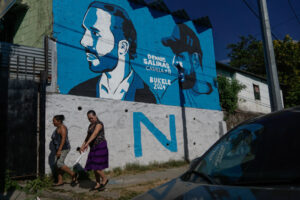Amnesty, Impunity, and Archives in El Salvador
A panel discussion with:
David Morales
Human Rights Ombudsman of El Salvador
Dr. Terry Karl
Gildred Professor of Latin American Studies and Professor of Political Science, Stanford University
Héctor Silva Avalos
Fellow, Center for Latin American and Latino Studies, American University
Following the end of El Salvador’s 13-year civil in 1992, the country’s legislature passed a General Amnesty Law. For years, the law has provided generalized protection against prosecutions for human rights abuses committed during the conflict. But the years of amnesty may be coming to an end: El Salvador’s Constitutional Court has recently agreed to hear a challenge to the constitutionality of the law, and a decision is expected in the next few months. The appeal follows last year’s ruling by Inter-American Court of Human Rights (IACHR), which found that the amnesty law conflicts with international human rights standards. The IACHR directed Salvadoran authorities to consider the law null.
Overturning the amnesty would dramatically change the status quo in El Salvador. The Attorney General would be free to open investigations and carry out prosecutions in a number of well-known cases, such as the 1981 El Mozote massacre and the 1989 massacre of six Jesuits, their housekeeper, and her daughter. Prosecuting these cases would test the Salvadoran judicial system’s capacity to investigate, prosecute, and adjudicate impartially and without fear or favor.
The prospect that the amnesty might be overturned has generated intense debate in El Salvador about the amnesty, the role of the Constitutional Court, and how the Attorney General might respond. This debate is also taking place in a moment in which the integrity of human rights archives in El Salvador is in question. Tutela Legal, the human rights office of the Archdiocese of San Salvador, was abruptly closed in early October, and there is uncertainty about how the Archdiocese will manage Tutela’s records, which constitute one of the largest human rights archives in the country. The archives of Pro-Búsqueda, an organization that attempts to identify children who disappeared during the war and re-connect them with their birth families, were recently destroyed by armed men who burst into the organization’s offices at night. If the amnesty were to be overturned and prosecutions to move forward, the contents of these records—and, in turn, their protection—will be more important than ever.
This panel discussed the challenges in protecting human rights records, the prospects for overturning the amnesty and the challenges that will present for the Constitutional Court, the Attorney General, and the judicial system.

